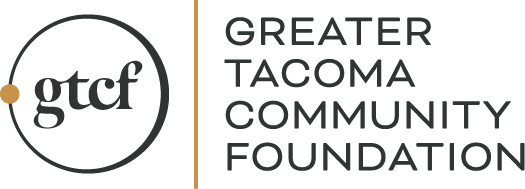
Community
7
Local Organizations Go Beyond the Gala for Deeper Donor Engagement
When she arrived at her post as president and CEO of Goodwill of the Olympics and Rainier Region in 2017, Lori Forte Harnick wanted to engage donors more deeply in the organization’s transformational work. She had a vision: “More people should be invited to our beautiful work opportunity center so they can see us in action.” With that goal in mind, she and her staff replaced the decades-old offsite Goodwill breakfast, a luncheon in more recent years, with a series of much smaller quarterly events inside their building.
“We analyzed the amount we were bringing in and it wasn’t matching the time and money we were spending”
For the past 18 months, instead of one event for hundreds, Goodwill has hosted several “Rising Chefs” gourmet dinners, complete with wine pairings, for 40 to 60 of its biggest donors. As they enjoy food prepared by Goodwill’s own culinary students, guests hear about the students’ journeys to and through the training program and about the food they’ve prepared for the evening.
Goodwill is one of several local organizations exploring alternatives to the annual gala event fundraiser. While highly produced events and auctions can bring in big dollars, they also require significant staff resources and carry the risk of big losses if events don’t strike the right balance of budgeting, memorable experiences for donors, and mission-inspired giving.
Elements of Education—the nonprofit that supports Tacoma Public Schools’ SOTA, SAMi and iDEA high schools—recently reconfigured its long-running ArtRageous 400-guest gala auction and student showcase.
“We analyzed the amount we were bringing in and it wasn’t matching the time and money we were spending,” said Elements’ Brittany Skobel. “We realized that if we switched to a smaller format, we could spend time telling our story and connecting with donors in a really significant way.”
“Every year, you have to ask yourself, ‘What is the purpose of this event, what is it costing and what’s the return?’”
Based on input from staff, board members, and key donors, Elements split ArtRageous in two. They offered personalized invitations to its biggest past donors for one of two 100-guest three-course dinners. The redesigned events occur on subsequent evenings with streamlined auctions, more student stories, high-net dessert dashes, raffles, and a monthly contribution ask.
Elements spent less time and money on more intimate, mission-focused events with more time to connect personally with donors before, during, and after the events. They also received higher net revenue based on monthly giving that rolls over year to year.
At the Point Defiance Zoo Society, new executive director Ruthann Howell is overseeing a move away from the long-standing, high-profile Zoobilee to what she calls “more purposeful events”. She explains everything the Zoo Society is doing now to replace Zoobilee is focused on building authentic—as opposed to transactional—relationships.
“the first step in connecting with potential donors: making friends.”
A 30-year nonprofit fundraising veteran, Howell says, “Every year, you have to ask yourself, ‘What is the purpose of this event, what is it costing and what’s the return?’”
For Goodwill, Lori Forte Harnick says their new approach to fundraising events has yielded more personal stories and donor engagement, a better understanding of Goodwill’s programs, energized staff and board members, “… and way better food!”
Goodwill’s dinner events have not netted donations to match what the luncheon traditionally brought in, but Lori says, “It’s a much richer donor experience that has worked really well as a ‘friendraiser.’ And that’s the first step in connecting with potential donors: making friends.” She adds that past event sponsors have turned their sponsorships into direct program support and that her staff is crafting a new fund development strategy.
LEARN MORE
Fundraising consultant Alyssa Wright offers five key reasons nonprofits should consider going beyond the gala in her Network for Good webinar:
- To engage the next generation of funders, who are generally more interested in direct program involvement than in being wined and dined
- To enhance and retain strong donor relationships in ways that make them feel more closely aligned with the work you’re doing
- To respond to an ever-changing philanthropic landscape where new tax laws, investments, etc. are changing how people think about stewarding their resources
- To increase organizational efficiency by using people power to build relationships instead of to produce one big event
- To raise more money
Alyssa suggests organizations who look at the potential of re-configuring fundraising events stay focused on their highest return on investment. “Maybe intentionally slow down and look at the possibilities with respect to relationships that can be of value to you. Strong relationships are key to having everything you’re focused on come to scale. At galas, it can be hard to build that depth of donor relationship.”
Alyssa also offers a challenge to nonprofits, “What if next year, instead of the event, you looked at the 30 to 40 people who have been attending forever and target those who can contribute, but also those who can change the conversation? Ask them, ‘What would we do if we had unlimited resources? What if we had financial capital to unleash the greatest parts of what we are? What could we do then?’”
FURTHER RESOURCES
Network for Good Masterclass – Going Beyond the Gala: Alternative Event Fundraising Ideas
Beyond Fundraising: What does it mean to build a Culture of Philanthropy
The Generosity Network: Jeffersonian Dinners
The Chronicle on Philanthropy: 2019 Trends
To learn more about connecting with causes and organizations that build a thriving Pierce County, contact GTCF’s Philanthropy Department.








